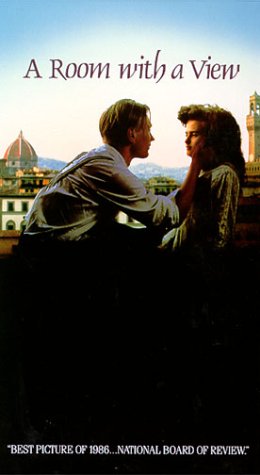No, the title of this post does not imply that I intend to compose another long missive about the view of the natural world from the window of A Room Somewhere. What I plan to discuss, briefly, is the novel I finished reading this week, A Room With A View by EM Forster.
Forster uses the tale of Lucy Honeychurch, a British young woman on the brink of maturity, to explore issues of social class and propriety. There is a hint of an Austen-like tension between common sense and folly, though Forster does not quite have Austen's light touch or subtle wit. Still, his characters, who start out seeming like stylized caricatures, develop unexpected complexity and insight by the final pages of the book.
In Forster's writing, as in Austen's, people of good sense reign themselves in from mindless adherence to fashionable views and practices. Self-worth and lifelong happiness are valued over social climbing. The novel might seem senseless or odd to those unfamiliar with the mores of the period when it was written (1908). I found in it to be a surprisingly enlightened view of women and their capabilities, considering that it was penned by a male author in the Edwardian era. The story line takes a pleasantly unexpected turn or two, as well.
I saw the Merchant-Ivory movie version of this tale (starring Helena Bonham Carter, Julian Sands and Maggie Smith) when it was released on video several years ago. To the best of my recollection, the screenplay, was faithful to the novel, though some of the nuances of character might not have made it onto the big screen. I plan to rent the DVD sometime soon for a renewed comparison.


